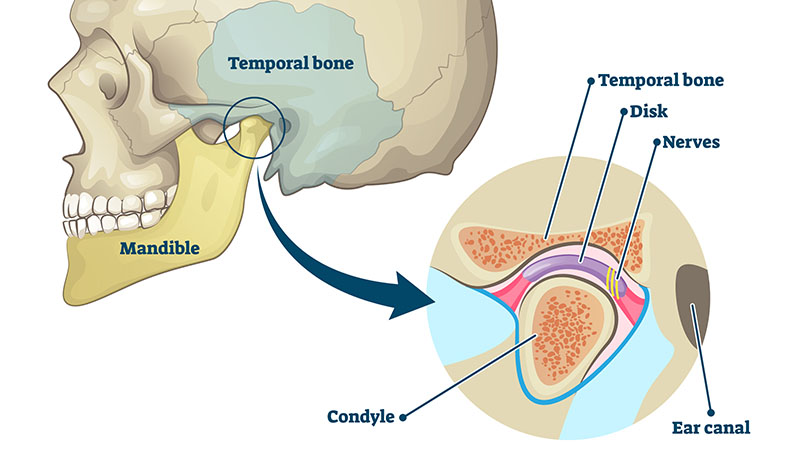TMJ Disorder
The temporomandibular joint (TMJ) is the joint connecting your jaw to your skull. Any problem that prevents this complex system of muscles, ligaments, discs and bones from working as it should, is called a TMJ Disorder. When this joint is damaged or injured, it causes localized pain and dysfunction. TMJ disorders often feels like your jaw is popping, clicking or even "getting stuck" for a moment. The exact cause of this misalignment is often difficult to determine.
Causes of TMJ disorders include injury to the teeth or jaw, misalignment of the teeth or jaw, bruxism, poor posture, arthritis, gum chewing and stress. Signs and symptoms of temporomandibular joint disorder includes:
- Pain in the jaw joint,
- Jaw clicking and popping,
- Ear pain,
- Popping sounds in ears,
- Headaches,
- Stiff or sore jaw muscles,
- Pain in the temple area,
- Locking of the jaw joint.
Although a TMJ Disorder may respond to home remedies (such as ice packs over the joint and over-the-counter anti-inflammatory drugs), in some cases home treatments do not work and professional intervention may be required.
There are different treatments that may dramatically reduce the symptoms of TMJ disorder. These treatments include:
Medication – trying to eliminate muscle spasm and pain by applying moist heat or taking medication, such as muscle relaxants, aspirin, other over-the-counter pain-relievers or anti-inflammatory drugs.
Wear a night guard – reduce the harmful effects of tooth clenching and grinding by wearing a night guard or splint.
Relax – learning relaxation techniques to help control muscle tension in the jaw. Your dentist may suggest you seek training or counselling to help eliminate stress.


